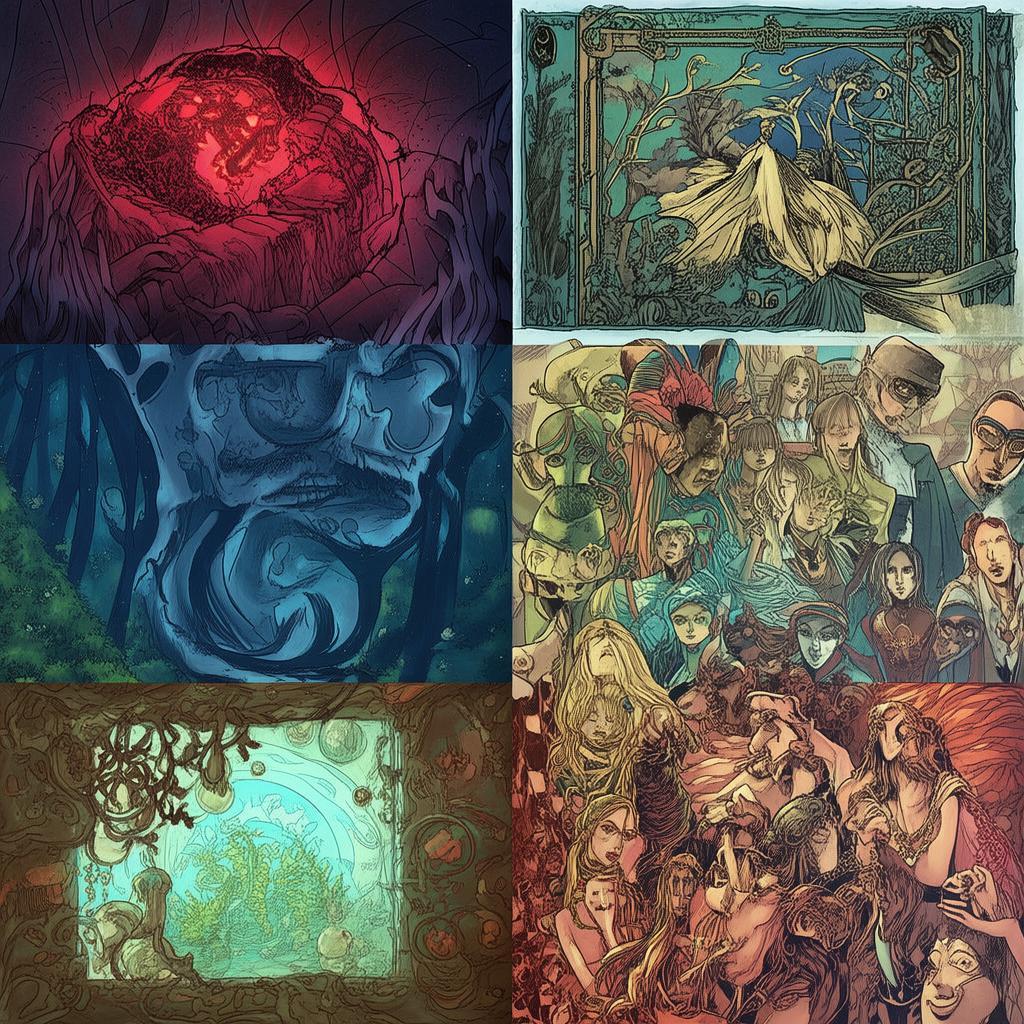Oratory Onslaught: The Tale of Tale-Tellers
In the heart of the ancient city of Veritas, where the air was thick with the scent of parchment and ink, Elara stood before the grand assembly hall. Her heart raced as she clutched the scroll that contained her life's work—a tale of love, loss, and redemption. She had spent years honing her craft, weaving words into a tapestry of emotion that could move mountains. But today, her tale was not to be shared in the comfort of her study, but in the arena of the oratory, where the most skilled tale-tellers of the land gathered to compete.
The crowd murmured with anticipation, their eyes fixed on the stage where Elara would deliver her speech. She took a deep breath, feeling the weight of her ancestors' expectations upon her shoulders. The oratory was not just a contest of words; it was a test of character, a battle of wits, and a showcase of the power of storytelling.
As she began to speak, her voice was clear and strong, carrying the weight of her tale. The crowd was captivated, their emotions riding the waves of her narrative. But amidst the applause and cheers, there was a shadow that loomed over the assembly hall—a figure known as The Narrator, a tale-teller whose words could twist the truth and bend the mind.
The Narrator, a man of great girth and even greater charisma, stepped forward, his eyes gleaming with mischief. "Ah, but tales are but shadows of the truth, my dear Elara," he said with a sly grin. "Let us see if your words can stand up to the light of day."
Elara's heart sank. She knew The Narrator's reputation. His tales were not just stories; they were weapons, capable of destroying reputations and lives. But she also knew that to retreat now would be to lose the respect of her peers and the admiration of the crowd.
With a determined look, Elara faced The Narrator. "I challenge you, The Narrator," she declared. "Let us see whose tale will be remembered."
The Narrator chuckled, a sound that sent shivers down the spines of the crowd. "Very well, Elara. Let us begin."
The contest was fierce. Elara's tale was one of love and sacrifice, while The Narrator's was a tale of betrayal and deceit. The crowd was divided, some cheering for Elara's purity of intent, others for The Narrator's cunning wit.
As the final words were spoken, the hall fell into silence. The Narrator had woven a tale so intricate and convincing that even Elara found herself questioning the truth. The crowd erupted into applause, and The Narrator basked in the glory of his victory.
Elara felt a wave of despair wash over her. She had lost, and she had lost to a tale-teller who used his art to manipulate and deceive. But as she walked away from the assembly hall, a thought struck her—a thought that would change everything.
She returned to her study, her heart heavy with the weight of defeat. But as she sat down to write, she realized that The Narrator's words had given her a new perspective. Instead of seeing his tale as a threat, she saw it as a challenge—a challenge to use her words for good, to tell the truth, even when it was difficult.

She began to write, not with the intent of winning another contest, but with the intent of healing the wounds of the world. Her next tale was one of forgiveness and understanding, a tale that spoke to the heart and called for change.
Word of her new tale spread like wildfire. People came from far and wide to hear Elara speak, not just for the beauty of her words, but for the message they carried. The Narrator, who had once been her greatest adversary, now sought her out, seeking to understand the power of her newfound purpose.
In the end, Elara's tale did not just win the hearts of the crowd; it won the respect of The Narrator and the admiration of the world. She had learned that the power of storytelling was not just in the words themselves, but in the message they conveyed and the impact they had on the listener.
The tale of Elara and The Narrator became a legend, a story that was told and retold, a reminder that the power of speech could be used for good or for ill, and that the choice was up to the teller.
And so, in the city of Veritas, the art of storytelling was not just a contest of words, but a contest of character, a reminder that the truth, no matter how difficult, was always worth telling.
✨ Original Statement ✨
All articles published on this website (including but not limited to text, images, videos, and other content) are original or authorized for reposting and are protected by relevant laws. Without the explicit written permission of this website, no individual or organization may copy, modify, repost, or use the content for commercial purposes.
If you need to quote or cooperate, please contact this site for authorization. We reserve the right to pursue legal responsibility for any unauthorized use.
Hereby declared.









